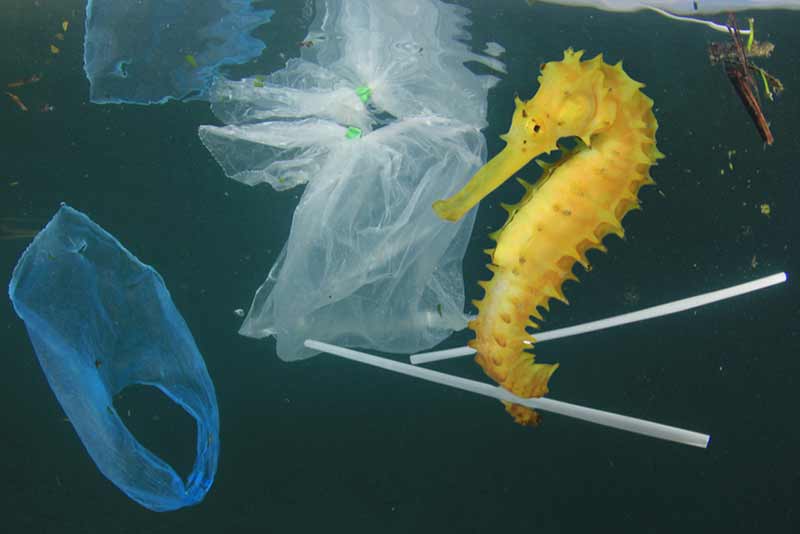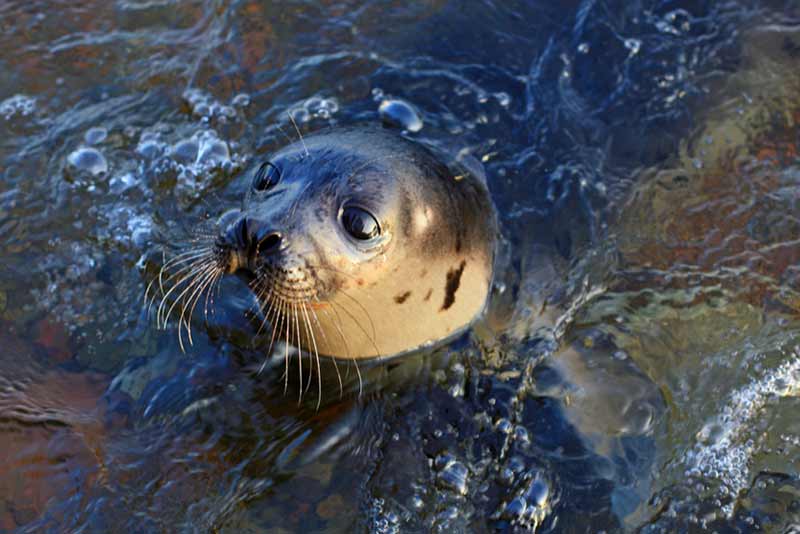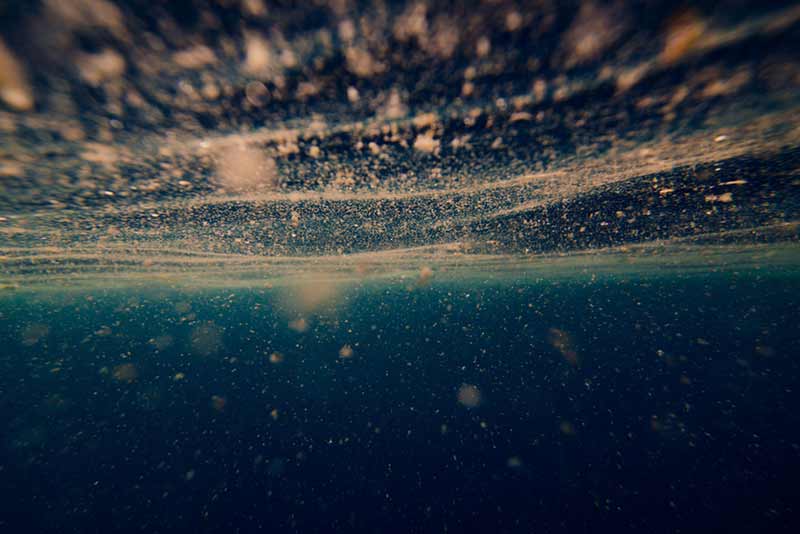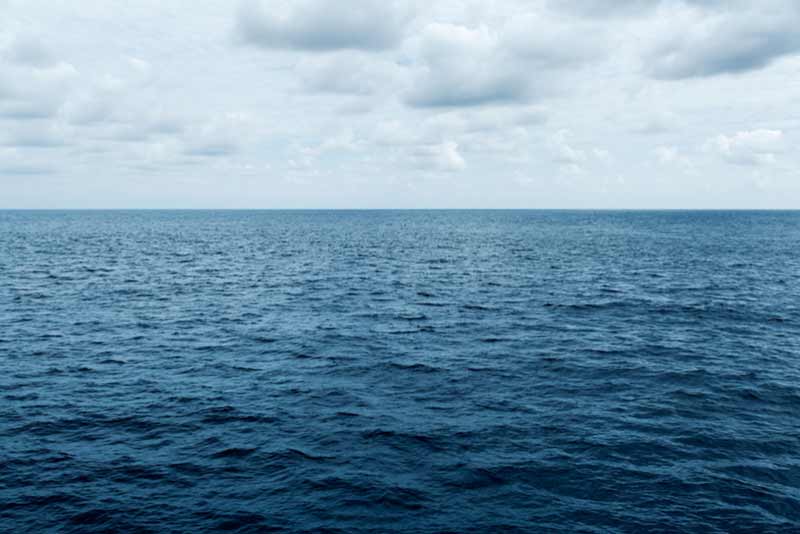The importance of protecting our seas and oceans through recycling

Since the dawn of time, humankind has been fascinated with our planet’s seas and oceans, as well as the vibrant and diverse species it is home to. This is hardly surprising, considering the fact that humans feel a deep connection with all aspects of nature, including our seas and oceans. They also make up a big part of the Earth, with water covering around 71% of its total surface. However, we don’t just feel a natural connection with them; our world’s water sources are vital for our survival, as well as the 6.5 million species that reside on land and the 2.2million that live in the ocean.
Unfortunately, our seas and oceans are under threat due to the great amount of waste materials that end up in them, causing irreversible pollution and other harm to the species that inhabit them. This is just one of the reasons why it’s so important to protect our seas and oceans through recycling, and all businesses should be keeping this issue in mind when disposing of their waste materials.
Remember, just because we can’t easily see the effect that unrecycled waste is having on our seas and oceans, it doesn’t mean that a great deal of damage isn’t being caused.
The importance of seas and oceans for life
Before we go into the statistics let’s look at some of the reasons why seas and oceans are so important for our planet’s various lifeforms, and why consumers and businesses alike should make the effort to preserve and protect them by recycling.

One of the biggest threats to our planet is global warming which is caused by greenhouse gases such as carbon dioxide (CO2) and methane being released into the atmosphere. Unfortunately, greenhouse gases are emitted by waste that’s sent to landfill, which is raising the Earth’s temperature, causing sea levels to rise and polar ice caps to melt. This has a detrimental effect on all forms of life on our planet and is a key reason why increasing numbers of species are becoming extinct.
However, did you know that like trees, our seas and oceans remove CO2 from the air? As a matter of fact, it’s been estimated that between 2002 and 2011, 26% of CO2 produced by cement manufacture,
burning fossil fuels and land-use chances was absorbed by oceans. This CO2 can be absorbed by plants and soil, but often it’s transported deeper into the ocean by phytoplankton, who consume CO2 during the process of photosynthesis and are then eaten by zooplankton. Unfortunately, this cycle could be disrupted by climate change warming the waters, which further reiterates the importance of recycling as much as possible.
Not only do our seas and oceans absorb CO2 but the Earth’s water sources are also vital to life as they provide over half of the oxygen we need to breath.

Nonetheless, it isn’t just humans and landlocked species that can benefit from protecting our seas and oceans. They also provide a home for around 2.2million aquatic species, many of which we’re still yet to discover. Disappearing species can disrupt the food chain as well as impact on scientific discovery; without the sea, many fascinating creatures wouldn’t have a place to live and we may never have the chance to discover them.
The problem with waste not being recycled
Improving the rate in which we recycle is one of the easiest steps both businesses and consumers alike can take to protect our seas and oceans. This is sadly still a problem that needs to be tackled as despite 71.4% of Britain’s packaging waste being recycled in 2016, statistics from Defra show that the amount being sent to landfill has in fact increased by 15% since 2013. This equates to an extra 446,000 tonnes of waste. As Edie explains, the problem isn’t just that a lot of waste materials can’t be recycled; in fact, it’s the opposite. In the UK, more than half of recyclable waste is destroyed or sent to landfill, instead of being recycled.
One of the main ways that waste materials end up in rivers, oceans and other water sources is due to it being blown away from landfill sites. Additionally, many people still flush items such as cotton buds, face and body wipes, and sanitary products down the toilet. Although microbeads are now banned in many parts of the world, these tiny pieces of plastic (found in cosmetic products, such as scrubs) would be washed down the drain. This results in them being released into our waterways, where they release chemicals into the water.
However, these chemicals (polybrominated diphenyl ethers, also known as PBDEs) aren’t just harmful to aquatic life. When fish eat microbeads, and these fish are eaten by humans, they can present a risk to our health by impairing our immune systems and causing infertility problems.
Another prime offender in polluting the world’s seas and oceans are plastic bags which are estimated to take between 10 and 20 years to decompose. According to statistics from 4ocean, a total of 275 billion plastic bags were produced worldwide in 2017, with The World Count estimating that around 5 million of these made their ways into oceans.
What your business can do to save our oceans

Fortunately, the world is taking steps to reduce the environmental impact of waste. One vital step has been Wales (and later, the rest of the UK) imposing a 5p plastic bag charge. Imposed on all single-use carrier bags from retailers and food outlets since 2015, the UK’s 7 leading supermarkets have seen an 86% decrease in plastic bag sales since the scheme began. Statistics also show that in 2017 customers bought 300 million less plastic bags than they did in 2016.
To further its impact, recent reports have revealed that the plastic bag charge is set to rise to 10p and it will be extended to smaller businesses. Currently, retailers with less than 250 employees don’t have to participate in the scheme.
With a reported 8.5 billion plastic straws being thrown away each year, plastic straws could be banned in fast food outlets, pubs and restaurants as early as next year. This is something that has already seen McDonalds and Wetherspoons swapping their plastic straws for paper ones. Pret A Manger and Costa Coffee have also pledged to ditch plastic straws sometime this year. However, it’s not just straws that are being targeted; plastic drink stirrers and cotton buds could also soon be banned.
Other ways that businesses are helping to protect our seas and oceans is by using recyclable materials to house their products. Lush Cosmetics for example say that 90% of their packaging is recycled and a number of their products (including shampoo bars and solid shower gels) are sold without packaging (besides from a paper bag). Another natural skincare brand, REN Clean Skincare is now also embracing recyclable materials. This year they announced that the packaging for their award-winning (and rather fitting) Atlantic Kelp and Magnesium Body Wash now contains ocean plastic. As REN explains, 80% of the packaging is made from recycled plastic bottles and the other 20% is from reclaimed ocean plastic This plastic has been collected by charities from the world’s lakes, rivers and oceans.
Nonetheless, the statistics show that more needs to be done and this is where your business can step in. The simple answer is to encourage your staff and visitors to your premises to recycle more and an easy way this can be achieved is by ensuring you have recycling bins available on site. One of the main reasons that people don’t recycle is because they don’t know which materials should be placed in each bin, so make sure these are clearly labelled to avoid them being put in the wrong one.
No matter your premises size or type, whether you’re a retail premises, hospital, hotel, or educational facility, investing in a waste baler will help you protect the world’s seas and oceans by making it easier to recycle your business waste. This is because they segregate and bale different waste materials, such as plastic and cardboard. At phs Wastekit we offer a range of balers and compactors for various sized premises and waste volumes.
In recent years, there’s been a rise in the amount of zero waste shops popping up over the high street. Although this might be tricky for every business to achieve, you can still take inspiration from this idea by offering customers a discount on certain items (such as sweets, nuts and seeds) if they bring in their own reusable bags. This is an idea that can also be adopted by coffee shops, with the likes of Starbucks giving customers a 25p discount on their drink if they bring in their own cup.
Lush Cosmetics and fellow skincare brand, Origins (which is owned by Estee Lauder), have also set up their own recycling schemes so customers can return any packing that can either be reused (like Lush’s black pots that house many of their products) or recycled. Why not take inspiration from them and do the same with your own products and produce?
To find out more about how a waste baler can help you reduce your impact on the planet and enable you to make money from your recycling, contact phs Wastekit today.